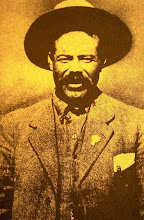¡Presidente Chávez da contundente respaldo a las Tecnologías Libres!
Indicó que se encargará de enfrentar la resistencia al software libre donde la haya, e indicó que el conocimiento debe ser universal y libre, que nadie puede privatizarlo ni apoderarse de él.
Video 1:
Click aquí para verlo en YouTube
El presidente Hugo Chávez ordenó a sus ministros, gobernadores y alcaldes ir desplazando tecnologías propietarias en sus administraciones e ir introduciendo software libre en sus plataformas tecnológicas, esto en la inauguración del Cenditel de Mérida. "Es muy importante la creación de nuestro software, de software libre", dijo Chávez. "Es de vital importancia, y yo sé que hay resistencia", dijo indicando que donde haya más resistencia se encargará de que deje de haberla.
Vídeo 2:
Click aquí para verlo en YouTube
El presidente venezolano explicó que las tecnologías libres son importantes para lograr la independencia científica y tecnológica del país.
Vídeo 3:
Click aquí para verlo en YouTube
El Presidente Hugo Chávez se refiere a la propiedad intelectual como una expresión del egoísmo capitalista, proveniente de países ya desarrollados. "El conocimiento no puede ser privatizado, es universal como la luz del sol, o como el viento, o el agua de los ríos. Nadie puede decir que la luz del sol es mía". Recomienda la aporpiación del conocimiento para adaptarlo a nuestras necesidades.
Vídeo 4:
Click aquí para verlo en YouTube
El Presidente Chávez describe los lineamientos para el Cenditel en torno a las Tecnologías Libres:
- Crear software libre para la administración pública, para ir sustituyendo el software de los entes del Estado (recordando la terrible experiencia del paro de PDVSA en el 2002)
- Crear Software Libre para las redes de Núcleos de Desarrollo Endógeno y para los diferentes sistemas que dependen del Estado.
- Hardware Libre, en coordinación con el Cenit.
- Tecnologías de medicamentos y
- Bioinformática.
Vídeo 5:
Click aquí para verlo en YouTube
El mismo 10 de noviembre en la noche, el presidente Chávez acudió a la Universidad Bolivariana de Venezuela (UBV) Núcleo Zulia, donde graduó a la primera promoción de TSU (Técnicos Superiores) de esa universidad. Allí nuevamente volvió a señalar la importancia de las tecnologías libres para el desarrollo soberano tecnológico del país.
Sería interesante ver si el Sr. Rosales se ha expresado (con palabras y con hechos concretos en la Gobernación del Zulia) de la misma forma en torno a las tecnologías libres, la propiedad intelectual y la libertad del conocimiento.

(Enlace al post original)
UPDATE:
Venezuela lanza venta de computadoras Bolivarianas.
(enlace a nota original)
Venezuela Launches Sale of "Bolivarian" Computers
By: Chris Carlson - Venezuelanalysis.com
|
Mérida, June 12, 2007 (venezuelanalysis.com)— The Venezuelan government of President Hugo Chavez announced the launch of their "Bolivarian Computers" last week, consisting of four different models produced in Venezuela with Chinese technology. The new computers will run the open-source Linux operating system and will first be used inside the government "missions" and state companies and institutions but eventually are expected to be sold across Venezuela and Latin America.
Venezuela’s President Hugo Chavez presented the new machines to the public last week at an event in the state of Falcon as he donated them to a school there. The new computers are produced by the joint venture VIT (Venezuela de Industria Tecnológica), which is owned by the Chinese company Lang Chao and the Venezuelan Ministry of Light Industry and Commerce.
"The price of other similar brands is US$ 930, and the price of our computer is almost 40% less," explained President Chavez. "But, in addition, it has an added value, given that it comes with open-source software and a three year guarantee, while other brands only offer one year."
Production of the models began in the end of 2006 and the first 1,619 units were distributed to students of Integral Medicine in the government program Mission Sucre. Chavez promised last October to give a computer to every one of the 11,100 students in the second year of the new medical education program Integral Community Medicine (MIC) and began to follow through with that promise last May.
"I feel excited because the president came through with his promise, and that makes us be more responsible with the program, more dedicated, since it is a big help that motivates us to keep moving forward," said one student.
Units have also been given to the Urban Transportation Fund, the Agrarian Bank, the national mail service Ipostel, and the Experimental University of Simon Rodriguez.
And although the first units have been donated to the public sector, the new Bolivarian computers will also be sold inside Venezuela and exported.
"We are working with cooperatives and small companies to form our own distribution network," said the manager of sales Eduardo Hernandez. "It's a slow process. This month we have already completed the formation (of a distribution network) in Caracas and by the end of the year we will have distribution and technical support throughout the whole country."
The computer factory is located on the Paraguana Peninsula in the state of Falcon and has an annual capacity of 150,000 units. For this year the factory is expected to assemble 80,000 units and 6,000 laptop computers.
Until now Venezuela has always imported computers both from well-known brands and generic brands from the developed world. With this new venture the Venezuelan government hopes to diversify national production, integrate national productive chains, and work towards technological independence for the country.
According to the web page of the new state company, VIT has the objective of "production, marketing and sale of technological products, with an emphasis in manufacturing and assembling computers and accessories. Our efforts are also focused on national export, with a future projection to the international market."
By the end of the year, the intention is to begin to locally produce some of the technology in order to substitute some of the imported components used in the assembly of the machines for components produced in Venezuela. In order to do this, the government has built installations for research and development in order to design the components inside the same factory.
The company is offering 3 different desktop models and one laptop with a price range of US$ 405 (Bs. 870,750) to US$ 1,400 (Bs. 3,010,000). The processors will range in speed from 1.5 GHz to a 3.0 GHz Intel Pentium IV and the laptop will use a 2.0 GHz Intel Core 2 Duo processor.
With respect to the operating system, Venezuela has taken a strong position in favor of open-source software in order to "promote technological development" and help "reach technological independence." For this reason the computers will use the open-source Linux, but the components are also compatible with the Windows operating system.























